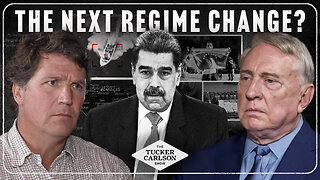Premium Only Content

'The Ministry for the Future' (1980) by Kim Stanley Robinson
Kim Stanley Robinson’s, 'The Ministry for the Future' stands as one of the most ambitious and urgent works of climate fiction in contemporary literature. Part speculative novel, part policy thought experiment, it imagines a near-future world grappling with the escalating consequences of global warming — and the radical, sometimes violent, steps humanity might take to ensure its survival. As in much of Robinson’s oeuvre, the book combines the rigor of scientific inquiry with the moral intensity of political philosophy, seeking not simply to entertain but to illuminate possible paths forward for our species.
At its core, 'The Ministry for the Future' follows Mary Murphy, an Irish diplomat appointed to lead the titular UN agency based in Zurich. The Ministry’s mandate is straightforward yet impossibly broad: to advocate for future generations and the natural world in the face of climate collapse. Around this institutional nucleus spins a kaleidoscope of perspectives — refugees, scientists, economists, drone operators, activists, and terrorists — each contributing to a polyphonic narrative of crisis and adaptation. Robinson eschews the conventions of a single protagonist or linear plot, opting instead for a mosaic of voices that together form a planetary portrait of struggle and resilience.
The novel opens with one of the most harrowing scenes in modern science fiction: a deadly heatwave in India that kills millions. This event serves as both narrative catalyst and ethical anchor, grounding the story’s speculative vision in immediate human suffering. From there, Robinson moves outward and upward — to the corridors of power in Europe, the ice sheets of Antarctica, and the atmospheric engineering projects in the sky — as humanity experiments with geoengineering, economic reform, and social reorganization to stave off extinction.
One of Robinson’s great strengths lies in his ability to blend realism with optimism. His worlds are not dystopias in the conventional sense but deeply plausible futures where cooperation, ingenuity, and moral courage still matter. The Ministry’s initiatives — from decarbonized economies and carbon-backed currencies to cooperative governance — draw heavily on real-world scientific and political discourse. The result reads as both fiction and blueprint, a literary manifesto for systemic change. Yet Robinson never allows the technical details to overshadow the emotional and ethical stakes; Mary Murphy’s cautious pragmatism and her encounters with activists like Frank May remind readers that the climate crisis is, above all, a human story.
Stylistically, the novel is experimental and at times demanding. It alternates between traditional narrative chapters and documentary fragments: reports, meeting minutes, eyewitness accounts, even animal perspectives. These interludes can be dense — pages of economic modeling or climatological data — but they reinforce Robinson’s central thesis that the fate of the Earth cannot be captured by a single viewpoint. His prose is didactic but never cynical, urging readers to imagine that systemic transformation, however daunting, remains possible.
Critics have occasionally faulted 'The Ministry for the Future' for its diffuse structure and didactic tone, yet these qualities are intrinsic to its ambition. Robinson is not merely telling a story; he is staging a conversation about the future of civilization. In an era when apocalyptic narratives dominate climate discourse, his vision is strikingly post-apocalyptic — a future that does not end, but endures. Humanity, bruised and divided, nevertheless persists, inventing new forms of solidarity and stewardship.
In the end, 'The Ministry for the Future' functions as both a warning and a work of hope. It acknowledges the depth of our peril while insisting that there is still agency, still time, still work to be done. Robinson’s achievement is to make climate change — a vast, abstract, often paralyzing phenomenon — feel immediate and navigable through human imagination and collective will.
It is a novel that refuses despair. In its blend of activism and art, 'The Ministry for the Future' challenges readers to recognize that the future is not predetermined — it is something we must continually fight to create.
-
 34:55
34:55
BlabberingCollector
1 day agoHBO Set Leaks, Audible AudioBooks Paves New Harry Potter Future, & More! | Wizarding World Roundup
6.25K3 -
 LIVE
LIVE
Lofi Girl
3 years agolofi hip hop radio 📚 - beats to relax/study to
124 watching -
 25:03
25:03
GritsGG
14 hours agoHow to Obtain Warzone VICTORY From a TREE! Casual Solo Gameplay!
14.9K4 -
 2:48:05
2:48:05
FreshandFit
10 hours agoGhetto Fake Russian Disrespected The Entire Panel & THIS Happened...
244K170 -
 1:27:57
1:27:57
Tucker Carlson
7 hours agoTucker and Col. MacGregor Warn How Neocons Are Exploiting the Drug Crisis to Drag America Into War
39.3K152 -
 2:08:50
2:08:50
Badlands Media
12 hours agoDevolution Power Hour Ep. 402: Arctic Frost, Trump’s Third Term & The G2 Showdown
92.7K56 -
 2:05:48
2:05:48
Inverted World Live
11 hours agoUFO Seen Over Tokyo During Trump Visit | Ep. 132
69.5K21 -
 2:54:08
2:54:08
TimcastIRL
9 hours agoDemocrat FEDERALLY INDICTED For Obstructing ICE Agents In Chicago | Timcast IRL
225K110 -
 7:17:25
7:17:25
SpartakusLIVE
11 hours agoNEW - REDSEC Battle Royale || The Duke of Nuke CONQUERS ALL
52.7K9 -
 2:38:39
2:38:39
PandaSub2000
1 day agoNintendo DS Night | ULTRA BEST AT GAMES (Original Live Version)
31.9K25